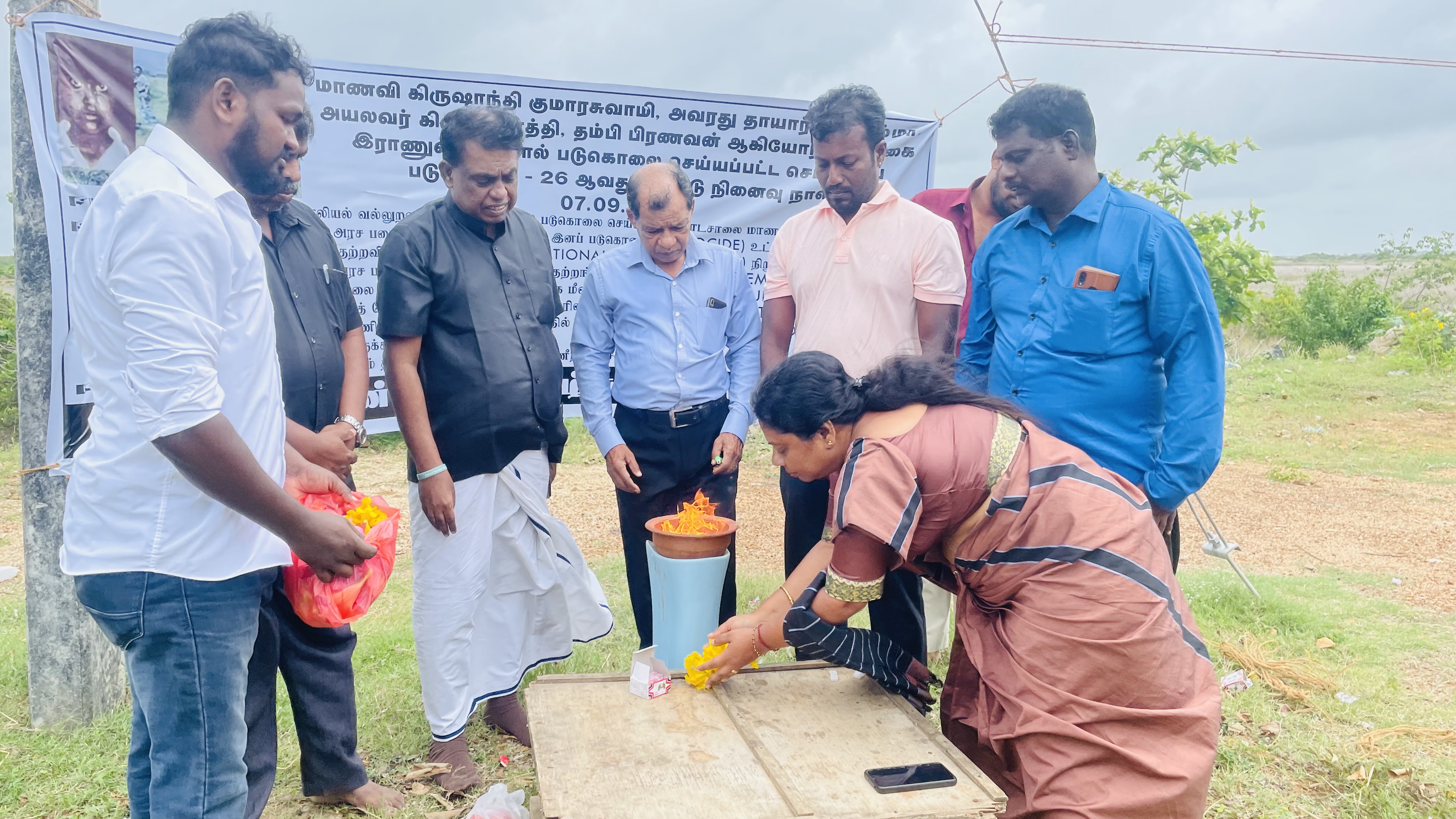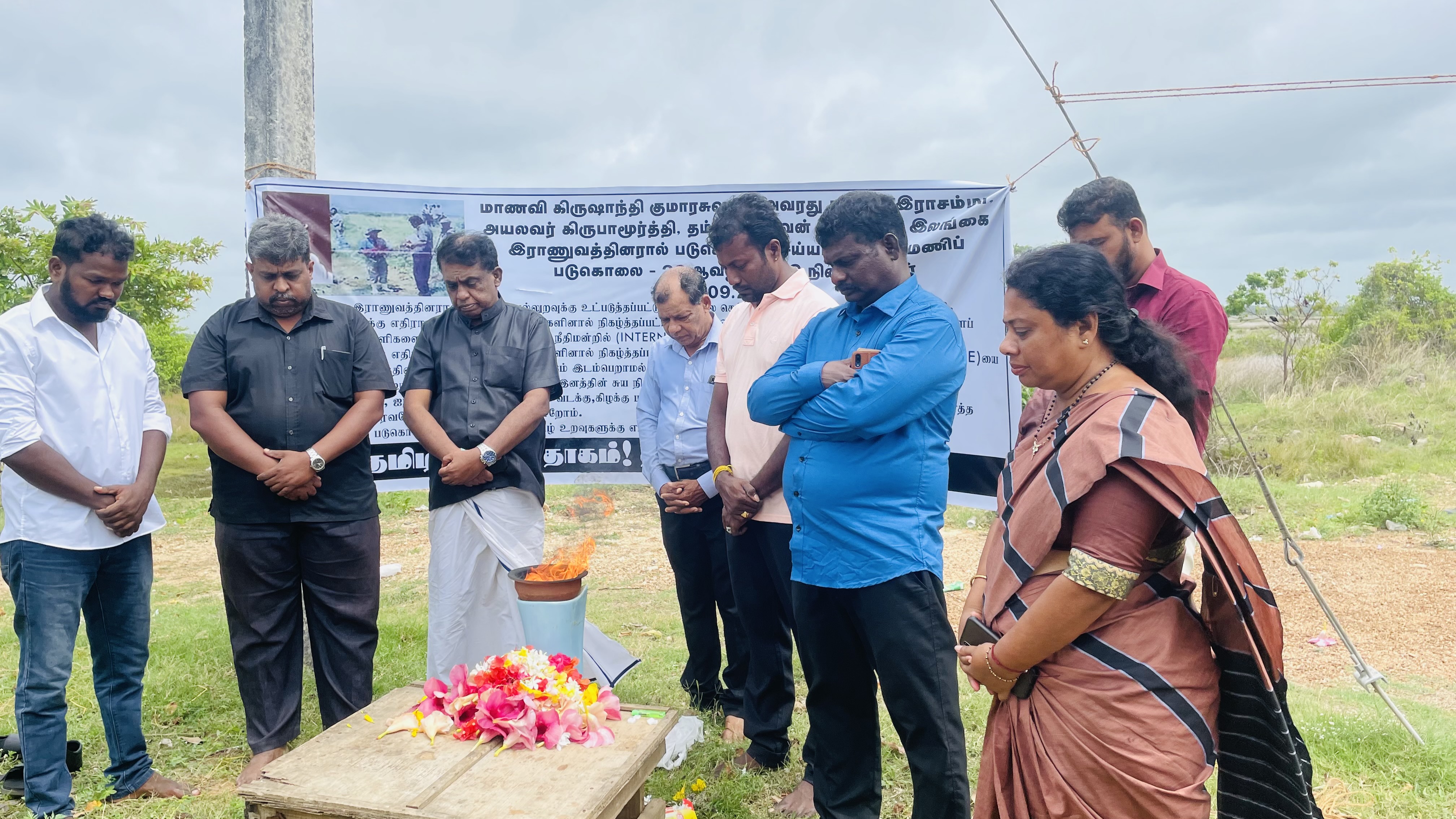
Krishanthi Kumaraswamy, the Tamil schoolgirl raped and murdered by Sri Lankan soldiers in 1996, was remembered in her hometown of Chemmani today.
On September 7, 1990, Krishanthi was on her way home from school when she was stopped by a Sri Lankan soldier who called her into the Kaithady military checkpoint for 'questioning' when eleven officers kidnapped and gang raped her before killing her and burying her dismembered body in a ditch.
Krishanthi’s 16 year old brother, Pranavan, her mother, Rasamma and a family friend, Kirupakaramoorthy who went in search of Krishanthi were also strangled with a rope and buried in a ditch behind the checkpoint.
In 1998, six of the officers involved were sentenced to death and three others sentenced to 20 years of imprisonment.

Corporal Somaratne Rajapakse, who was found guilty of abducting, raping and killing Krishanthi, her mother, young brother and neighbor, revealed that there were at least 300 to 400 other bodies buried in Chemmani.
In a recently released report by the People for Equality and Relief in Lanka (PEARL) which examines how Sri Lanka has failed to punish perpetrators of conflict-related sexual violence against Tamils, the organisation states that:
"This is the only publicly known case where Sri Lankan soldiers were convicted for a wartime rape of a Tamil,134 and it was also the first time that members of the security forces received a heavy sentence for human rights violations."
"However and notably, only lower-ranking soldiers who were directly responsible were prosecuted and convicted; despite one soldier credibly testifying to receiving orders to rape and kill, no higher-ups were even investigated," they added.
This is the only case that has seen its perpetrators prosecuted in Sri Lanka while countless instances of widespread sexual violence and other crimes by Sri Lankan forces against Tamils have gone unpunished.
